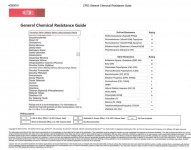There are already dispensaries carrying Dimethyl Ether Hash oil in Boulder Colorado Skyhigler. It is being used in closed loop systems out here commercially. Everyone else is just catching up it seems. I blame Z Air for being so secretive and throwing the hash community into a hissy fit about it... it only muddied up the waters with conjecture and hype spreading disinformation.
What kind of recycle system are they running it in?






